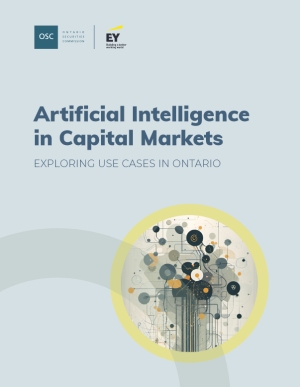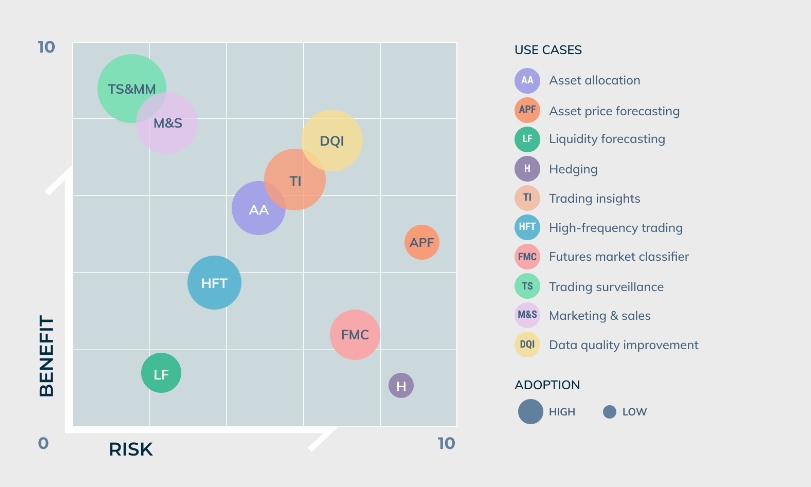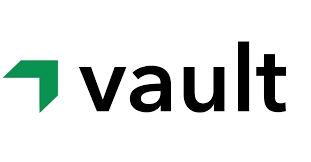AI and Capital Markets | Oct 25, 2023


The Ontario Securities Commission (OSC) and Ernst & Young LLP (EY) publish a timely report on ‘AI in Capital Markets – Exploring Use Cases in Ontario‘
The integration of Artificial Intelligence (AI) in capital markets, particularly within the fintech sector, is revolutionizing how financial services are delivered and managed. The comprehensive report covers numerous use cases where AI is making significant strides and the role regulators can play.
AI Fintech Use Cases
Below we’ve pulled out some of the use cases most pertinent to fintech innovation.
Automated Customer Support and Advisory Services
- AI-powered chatbots and virtual assistants are becoming increasingly prevalent in fintech, providing instant customer support and financial advice. These tools can analyze customer data, understand context, and deliver personalized recommendations, enhancing customer experience and engagement. Will AI-bots replace human financial advisors?
- Robo-advisors, another application of AI, are transforming wealth management by offering automated, algorithm-driven financial planning services with minimal human intervention.
See: FCA’s Emerging Regulatory Strategy for Big Tech and Artificial Intelligence
Fraud Detection and Risk Management
- AI algorithms excel at identifying patterns and anomalies in large datasets. In fintech, these capabilities are crucial for detecting fraudulent activities and managing risks. Machine learning models can analyze transaction data in real-time, flagging suspicious activities and reducing the incidence of false positives.
- This not only enhances security but also ensures compliance with regulatory standards.
Credit Scoring and Loan Approval
- Traditional credit scoring methods can be time-consuming and may not always provide a comprehensive view of an applicant’s creditworthiness. AI-driven models, on the other hand, can assess a wider range of data, including non-traditional data sources, to provide more accurate and fair credit assessments.
- This results in faster loan approvals and can also help in extending credit to underserved populations who may not have a traditional credit history.
Algorithmic Trading and Asset Management
- AI is used to analyze market trends, predict price movements, and execute trades at optimal times.
- Algorithmic trading strategies powered by AI can process vast amounts of market data at high speeds, making more informed trading decisions and potentially leading to higher returns.
- Additionally, AI is being used to optimize asset allocation in investment portfolios, ensuring that they align with the investor’s risk tolerance and investment goals.
Personalized Banking and Financial Products
- AI enables fintech companies to offer personalized banking experiences and financial products tailored to individual customer needs.
- By analyzing customer data, AI algorithms can identify customer preferences and behavior patterns, enabling financial institutions to offer personalized product recommendations, pricing, and financial advice.
See: How AI is Shaping the Future of Financial Services in Canada
Regulatory Compliance and Reporting
- The fintech industry is heavily regulated, and compliance can be a complex and resource-intensive task. AI is being used to automate compliance processes, ensuring that financial institutions adhere to regulatory standards and reporting requirements.
- This reduces the risk of non-compliance and also frees up valuable resources that can be used elsewhere.
The chart below plots use cases from the report by their perceived benefit and risk:


Impact to Regulatory Approach and Governance
With the explosion of AI use cases that are expected between today and the next 24 months, regulators and financial institutions need to strike a balance between fostering innovation and ensuring market integrity, consumer protection, and financial stability.
See: Will Canada’s New Voluntary AI Code Hinder Innovation?
1. Need for Agile and Adaptive Regulation
- The rapid pace of AI development and adoption in fintech demands a more agile and adaptive regulatory approach. Regulators must stay abreast of technological advancements to understand their implications and adjust regulatory frameworks accordingly.
- This may involve updating existing regulations, introducing new guidelines, or experimenting with regulatory sandboxes to allow for safe testing of innovative solutions.
- Regulators need to be investing in regulatory technology (RegTech) solutions. These tools leverage AI and other technologies to enhance regulatory monitoring, reporting, and compliance processes, enabling more efficient and effective oversight.
2. Focus on Explainability and Transparency
- AI models, particularly deep learning models, are often criticized for their lack of explainability and transparency. In a regulated industry like finance, where accountability and the ability to explain decision-making processes are crucial, this poses a significant challenge.
- Regulators are increasingly emphasizing the importance of explainable AI, pushing for the development of models that are transparent and whose decisions can be easily interpreted and justified.
3. Enhanced Risk Management and Compliance
- Regulators are focusing on ensuring that financial institutions have appropriate governance structures in place to manage the risks associated with AI, including data privacy concerns, potential biases in decision-making, and the reliability of AI models.
- This includes regular audits, stress testing of AI models, and ensuring that there are adequate controls and oversight mechanisms in place.
See: Sustainability: A Must for Fintech Growth
4. Data Privacy and Security
- Regulators are emphasizing the importance of protecting consumer data, ensuring that financial institutions adhere to strict data protection standards.
- This includes ensuring that data used to train AI models is anonymized and that there are safeguards in place to prevent data breaches.
5. Ethical Considerations and Bias Mitigation
- The potential for bias in AI models, particularly in decision-making processes related to credit scoring, lending, and insurance, is a significant concern.
- Regulators are focusing on ethical AI practices, ensuring that financial institutions are aware of the potential biases in their models and are taking steps to mitigate them.
- This includes promoting diversity in data sets and development teams, as well as implementing bias detection and correction mechanisms.
See: Canada New AI Copyright Policy Consultation
Conclusion
The use of AI in fintech is creating more efficient, secure, and personalized financial services. From enhancing customer interactions to improving security and compliance, the potential applications of AI in fintech are vast and varied. As the industry continues to evolve, the adoption of AI will play a crucial role in shaping the future of finance, driving innovation, and creating value for both businesses and consumers.

 The National Crowdfunding & Fintech Association (NCFA Canada) is a financial innovation ecosystem that provides education, market intelligence, industry stewardship, networking and funding opportunities and services to thousands of community members and works closely with industry, government, partners and affiliates to create a vibrant and innovative fintech and funding industry in Canada. Decentralized and distributed, NCFA is engaged with global stakeholders and helps incubate projects and investment in fintech, alternative finance, crowdfunding, peer-to-peer finance, payments, digital assets and tokens, artificial intelligence, blockchain, cryptocurrency, regtech, and insurtech sectors. Join Canada’s Fintech & Funding Community today FREE! Or become a contributing member and get perks. For more information, please visit: www.ncfacanada.org
The National Crowdfunding & Fintech Association (NCFA Canada) is a financial innovation ecosystem that provides education, market intelligence, industry stewardship, networking and funding opportunities and services to thousands of community members and works closely with industry, government, partners and affiliates to create a vibrant and innovative fintech and funding industry in Canada. Decentralized and distributed, NCFA is engaged with global stakeholders and helps incubate projects and investment in fintech, alternative finance, crowdfunding, peer-to-peer finance, payments, digital assets and tokens, artificial intelligence, blockchain, cryptocurrency, regtech, and insurtech sectors. Join Canada’s Fintech & Funding Community today FREE! Or become a contributing member and get perks. For more information, please visit: www.ncfacanada.org
Related Posts
- SEO Powered Content & PR Distribution. Get Amplified Today.
- PlatoData.Network Vertical Generative Ai. Empower Yourself. Access Here.
- PlatoAiStream. Web3 Intelligence. Knowledge Amplified. Access Here.
- PlatoESG. Carbon, CleanTech, Energy, Environment, Solar, Waste Management. Access Here.
- PlatoHealth. Biotech and Clinical Trials Intelligence. Access Here.
- Source: https://ncfacanada.org/osc-ey-report-ai-in-fintech-use-cases/
- :is
- :not
- :where
- $UP
- 100
- 150
- 2018
- 24
- 25
- 250
- a
- ability
- accordingly
- accountability
- accurate
- activities
- adaptive
- adhere
- adjust
- Adoption
- advancements
- advisors
- advisory
- affiliates
- agile
- AI
- AI models
- ai use cases
- algorithms
- align
- allow
- also
- alternative
- alternative finance
- always
- amounts
- an
- analyze
- analyzing
- and
- Another
- Application
- applications
- approach
- appropriate
- ARE
- artificial
- artificial intelligence
- Artificial intelligence (AI)
- AS
- assess
- asset
- Assets
- assistants
- associated
- At
- audits
- aware
- Balance
- Banking
- BE
- become
- becoming
- behavior
- being
- below
- benefit
- between
- bias
- biases
- Big
- big tech
- blockchain
- both
- breaches
- businesses
- but
- by
- cache
- CAN
- Canada
- capabilities
- capital
- Capital Markets
- case
- cases
- challenge
- Chart
- chatbots
- closely
- code
- commission
- community
- Companies
- complex
- compliance
- comprehensive
- Concern
- Concerns
- consent
- considerations
- consultation
- consumer
- Consumer Protection
- Consumers
- context
- continues
- controls
- copyright
- cover
- covers
- create
- Creating
- Creating Value
- credit
- creditworthiness
- Crowdfunding
- crucial
- cryptocurrency
- customer
- customer data
- customer experience
- customer needs
- Customer Support
- data
- Data Breaches
- data privacy
- data protection
- data sets
- datasets
- decentralized
- Decision Making
- decisions
- deep
- deep learning
- deliver
- delivered
- deloitte
- demands
- Detection
- Development
- digital
- Digital Assets
- distributed
- driving
- easily
- ecosystem
- Education
- Effective
- efficient
- elsewhere
- emerging
- emphasizing
- enables
- enabling
- engaged
- engagement
- enhance
- enhanced
- enhancing
- ensures
- ensuring
- Ernst & Young
- essential
- Ether (ETH)
- ethical
- evolve
- Excel
- execute
- existing
- expected
- experience
- Experiences
- Explain
- Explainability
- Exploring
- explosion
- extending
- EY
- fair
- false
- finance
- financial
- financial innovation
- Financial institutions
- financial products
- financial services
- financial stability
- fintech
- Fintech Companies
- fintech innovation
- Focus
- focusing
- For
- fostering
- frameworks
- fraudulent
- from
- FTSE
- funding
- funding opportunities
- future
- get
- Global
- Goals
- governance
- Government
- Growth
- guidelines
- Hamster
- hand
- Have
- heavily
- help
- helps
- High
- higher
- hinder
- history
- How
- HTML
- http
- HTTPS
- human
- identify
- identifying
- implementing
- implications
- importance
- improving
- in
- incidence
- includes
- Including
- increasingly
- individual
- industry
- information
- informed
- Innovation
- innovative
- institutions
- insurance
- Insurtech
- integration
- integrity
- Intelligence
- interactions
- intervention
- introducing
- investing
- investment
- investment goals
- involve
- IT
- Jan
- jpg
- Key
- Lack
- large
- learning
- lending
- Leverage
- like
- LLP
- loan
- machine
- machine learning
- Making
- manage
- managed
- management
- managing
- Market
- Market Data
- Market Trends
- Markets
- Matrix
- max-width
- May..
- means
- mechanisms
- member
- Members
- methods
- minimal
- Mitigate
- models
- monitoring
- months
- more
- more efficient
- most
- movements
- mr
- must
- Need
- needs
- networking
- New
- next
- numerous
- Oct
- of
- offer
- offering
- often
- on
- only
- Ontario
- opportunities
- optimal
- or
- osc
- Other
- out
- Oversight
- Pace
- particularly
- partners
- patterns
- payments
- peer to peer
- perceived
- perks
- Personalized
- PHP
- Place
- plato
- Plato Data Intelligence
- PlatoData
- Play
- please
- policy
- policymakers
- populations
- portfolios
- poses
- potential
- potentially
- powered
- practices
- preferences
- prevalent
- prevent
- price
- pricing
- privacy
- process
- processes
- Product
- Products
- projects
- promoting
- protection
- provide
- provides
- providing
- publish
- Pushing
- range
- rapid
- real-time
- recommendations
- reduces
- reducing
- Regtech
- Regulate
- regulated
- regulations
- Regulators
- regulatory
- related
- reliability
- replace
- report
- Reporting
- Requirements
- resource-intensive
- Results
- Revolutionizing
- Risk
- risk management
- risks
- Role
- s
- safe
- safeguards
- sandboxes
- scoring
- sector
- Sectors
- secure
- Securities
- security
- Services
- Sets
- shaping
- significant
- Solutions
- some
- Sources
- speeds
- Stability
- stakeholders
- standards
- stay
- Steps
- Stewardship
- strategies
- Strategy
- stress
- strict
- strides
- strike
- structures
- support
- suspicious
- Sustainability
- tailored
- taking
- Task
- tech
- technological
- Technologies
- Technology
- Testing
- that
- The
- The Future
- their
- Them
- There.
- These
- they
- this
- thousands
- timely
- times
- to
- today
- Tokens
- tolerance
- tools
- Trading
- Trading Strategies
- traditional
- Train
- transaction
- transforming
- transparent
- Trends
- truly
- Trust
- underserved
- understand
- updating
- use
- use case
- used
- Valuable
- value
- Vast
- Ve
- vibrant
- View
- Virtual
- Visit
- voluntary
- we
- Wealth
- wealth management
- WELL
- What
- WHO
- whose
- why
- wider
- will
- with
- within
- works
- young
- zephyrnet











